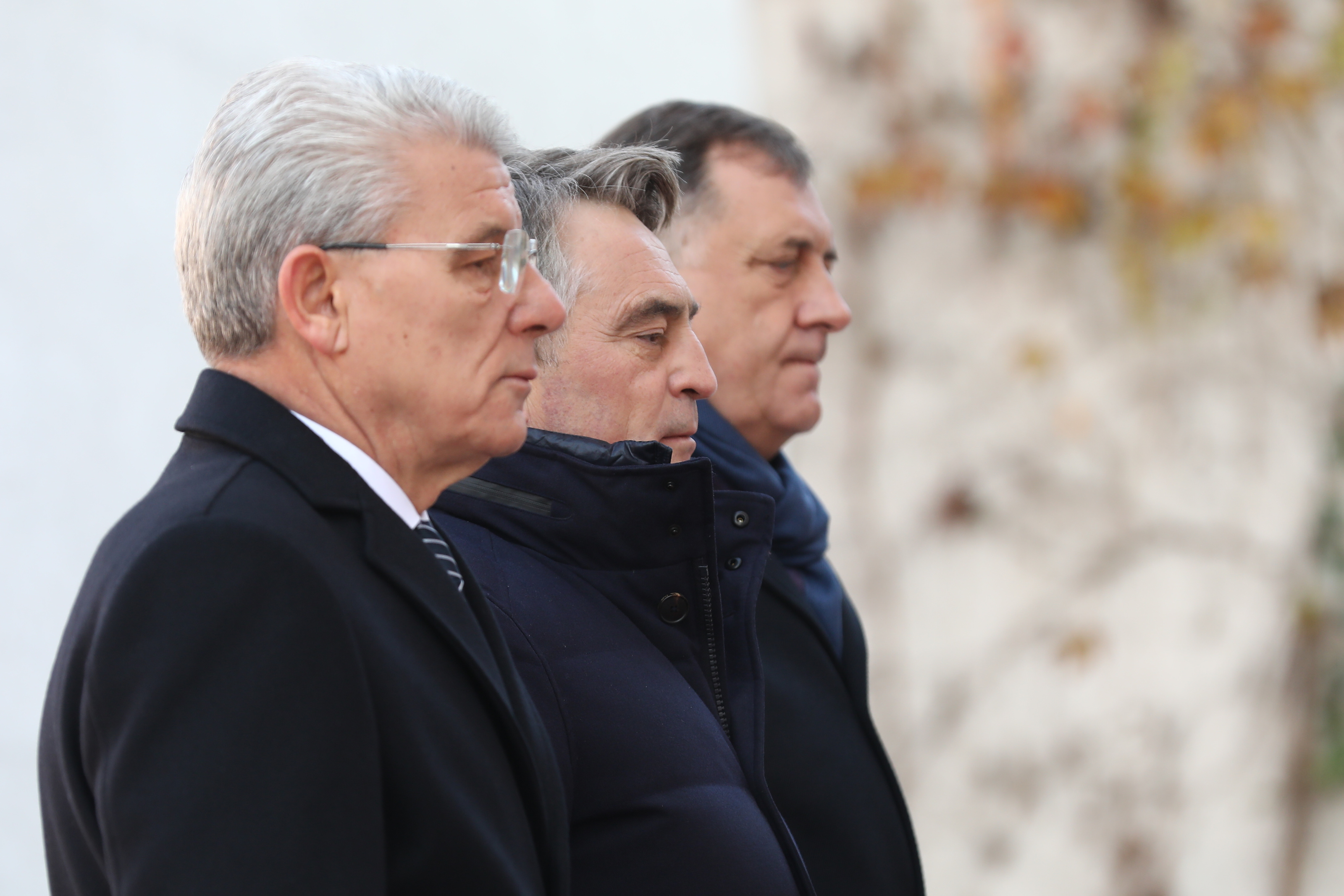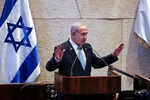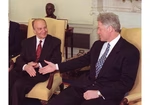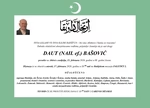
Bosnia’s three Presidency members made it clear on Wednesday that they have opposite views of Serbia’s new Defence and National Security Strategy.
Serbia’s Defence Minister, Aleksandar Vulin, presented on Tuesday the document which says that the preservation of Republika Srpska (RS), one of Bosnia’s two semi-autonomous entities, is among Serbia's top foreign affairs priorities.
While the Bosnian Croat and Bosniak members of the Bosnian Presidency argued that this breaches Bosnia’s sovereignty, the Bosnian Serb member said Serbia has every right to do so and that his colleagues should refrain from interfering in the neighbouring country's internal matters.
The current Presidency Chairman and Bosnian Croat member, Zeljko Komsic, argued that the adoption of the Strategy would introduce new tensions in the Western Balkans and that it represents “open hostility towards the state of Bosnia and Herzegovina.”
Serbia’s President should immediately suspend the strategy before “it gets too late,” Komsic said, adding that the “wounds Bosnia has from the latest Serbian aggression and the committed (Srebrenica) genocide are still fresh.”
“They can be sure we will not allow that to happen again,” he stressed.
Komsic also recalled that Serbia is a legal successor of the Socialist Republic Yugoslavia, one of the signatories of the Dayton Peace Agreement (DPA) which ended the 1992-1995 Bosnian war and that with its signature, the country obliged itself to recognise and respect Bosnia's sovereignty and its territorial integrity and agreed that it has no competencies over Bosnia.
This is “completely opposite to the Strategy's part concerning the military and defence aspect,” she said.
The Presidency Chairman added that some top NATO states also signed the DPA and that Bosnia will also soon be a member of the alliance which will “put an end to Serbia’s fantasies.”
Bosniak Presidency member Sefik Dzaferovic argued that Serbia has no right to declare part of Bosnia its special interest and that Republika Srpska is not only the entity of Serbs.
“Declaring part of Bosnia and Herzegovina a special interest for the security and defence of the Republic of Serbia is an expression of an aggressive policy toward Bosnia. The entity of Republika Srpska is part of the sovereign state of Bosnia and Herzegovina and is not only the entity of the Serb people but also of Bosniaks, Croats and any other peoples who may live there, as is all of Bosnia and Herzegovina,” Dzaferovic said.
He stressed that no other countries, “especially not those who were signatories of the Dayton Peace Agreement because of their participation in the aggression on Bosnia and Herzegovina,” can not be the protectors of any Bosnian territory.
Dzaferovic added that the statements coming from Serbian officials recently remind of the rhetoric which came from the country in the past.
“When taking into account various arguments which came from Serbia recently on the ‘protection of the Serb peoples wherever they may live’ and that ‘Republika Srpska does not have an army but the Serb people do’, it can be concluded that this strategy is nothing other than a repackaged version of the strategy which has in the 1990s of the last century tried to implement the criminal regime of Slobodan Milosevic,” Dzaferovic said.
Their Serb colleague in the Presidency, Milorad Dodik, has a completely different opinion. He said he does not understand the “hysteria which emerged from Sarajevo,” arguing that it “worsens the relations between Bosnia and its two most important neighbours, Serbia and Croatia.”
“Serbia is a sovereign, independent and friendly country which has its sovereign right to decide on all important issues for the Serbian people and the Serbian state and we are extremely thankful that they see Republika Srpska as a foreign affairs issue,” Dodik said.
“Persisting on the lies on the aggression and genocide, which never happened and which Serbs have nothing to do with, even 24 years after the war ended, is an act of deep hostility, so how can anyone who uses such rhetoric preach lessons on raising tensions?” he asked, arguing that Serbia can not be used as a political tool among Bosniak parties and suggesting that “Komsic and Dzaferovic come to their senses.”
Dodik argued that Serbia respects Bosnia’s territorial integrity and the Dayton Peace Agreement which secured the position of the RS, as well as the Agreement on Special Parallel Relations between Bosnia’s entities and the neighbouring states.
He urged Komsic and Dzaferovic, calling both the “Bosniak Presidency members”, to “respect Serbia’s sovereignty and the internal matters of a friendly neighbouring country.”
Kakvo je tvoje mišljenje o ovome?
Učestvuj u diskusiji ili pročitaj komentare





 Srbija
Srbija
 Hrvatska
Hrvatska
 Slovenija
Slovenija



























































